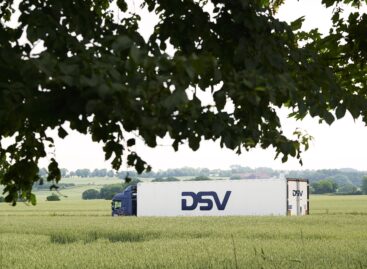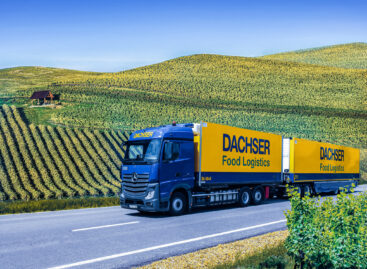Faster, greener, smarter – today’s minimum requirements in FMCG transport
Inflation, driver shortage, stricter regulations and sustainability expectations are all shaping the domestic transport market.
This article is available for reading in Trade magazin 2025/8-9.
Digital, green and flexible
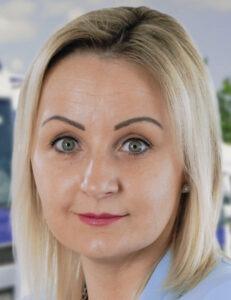
Orsolya Juhászné Seres
head of the freight forwarding
Trans-Sped
Dávid Mihályka
logistics specialist
Trans-Sped“The domestic freight forwarding market is currently influenced by technological development, sustainability efforts and rapidly changing customer needs”,
we learn from Orsolya Juhászné Seres, head of the freight forwarding office at Trans-Sped and Dávid Mihályka, logistics specialist of Trans-Sped.
Digital tools such as TMS systems, GPS-based tracking and electronic document management are no longer just a competitive advantage, but a basic requirement. Customers from the FMCG sector want short delivery times, accurate handling of temperature-sensitive goods and just-in-time operations. The company has been preparing ESG reports for many years and set itself the goals of reducing CO2 emissions, increasing the proportion of alternative fuels and introducing paperless operations.

Fleets on the move – aerodynamic tractors and refrigerated/dry-van trailers: reliability and capacity for daily FMCG deliveries
Shipping to Europe – even with a single pallet
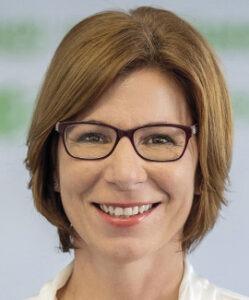
Nikoletta Kiss
owner and CEO
Palmsped Cargo
Nikoletta Kiss, owner and CEO of Palmsped Cargo Kft.:
“The freight market is characterised by mixed prospects. Although fuel prices have eased in recent months, high inflation and ongoing geopolitical risks are causing uncertainty”.
There are fewer goods and transport volumes are stagnating or declining, resulting in fierce competition. In this environment Palmsped is building its competitive edge on a diverse vehicle fleet and stable, transshipment-free transport organisation. Their one-stop shop service is particularly attractive to partners. At the moment Palmsped is working on a freight rate calculator that will make it possible to provide fast and accurate quotes for spot shipments – even for a single pallet – to any destination in Europe. The company has close ties with players in the FMCG sector.
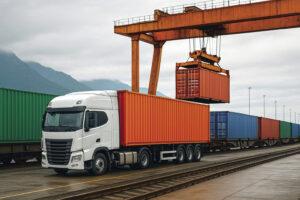
Intermodal shift – combining road and rail: lower CO₂ footprint, more stable costs, and improved network coverage
Special logistics, tailored to new expectations

Richárd Nyirő
managing director
DSV Hungária
Richárd Nyirő, managing director of DSV Hungária Kft.:
“Market players need to cope with a shortage of drivers, elevating fuel prices, rising road tolls and changes in the regulatory environment”.
New requirements include ICS2 and GB ENS, which put a significant additional burden on road transport firms from an operational perspective. DSV’s EcoVadis Platinum rating and its central objectives – e.g. reducing Scope 1 and 2 emissions by 50% until 2030 – demonstrate their strategic commitment. The company pays particular attention to intermodal transport solutions. These services ensure predictable transit times and reliable operations. The steady implementation of digital developments is also a priority for DSV Hungária, e.g. its own myDSV platform, automated customs robot, e-invoicing system and electronic waybill testing.
Smart system, refrigerated service

Gábor Prazsák
food logistics branch
manager
DACHSER Hungary
“Food logistics is particularly sensitive to the challenges of the transport market. Labour shortage, price-sensitivity and declining subcontractor capacity have been defining the market for years”,
underlines Gábor Prazsák, food logistics branch manager at DACHSER Hungary.
From July 2025 tachographs will also be mandatory for vans weighing over 2.5 tonnes, which could significantly increase the cost of small-package road freight transport. DACHSER sees the solution in more cost-efficient and sustainable groupage transport.
The company’s digital platform provides quote requests, document management, tracking and CO2 reporting on a single interface, supporting the ESG reporting obligations of customers. DACHSER also offers value-added logistics services such as temperature-controlled transport and refrigerated distribution.

Digital dashboard – telematics, TMS integration, and e-documents: precise time slots, transparent costs, and ESG-reportable data
Sustainability, speed, transparency

Viktor Varga
business development
director
K&V Logistic Solutions
“Four key factors have a big impact on the domestic freight market: infrastructure constraints, labour shortage, the advance of digitalisation and growing sustainability expectations”,
informs Viktor Varga, business development director at K & V Logistic Solutions.
The regulatory environment is changing all the time, forcing the sector to adapt continuously. Fast, flexible and transparent goods transport has become a basic requirement for companies in the FMCG sector. K & V satisfies partner needs with groupage transport, refrigerated and temperature-controlled shipping solutions, plus value-added services. Packaging, labelling, returns and repackaging are very important for FMCG partners. The company uses a modern fleet tracking system, TMS and e-documentation, which enable route optimisation and reduce the administrative burden.
Strengthening intermodal transport
The performance of Hungarian rail and intermodal freight transport showed a mixed picture in 2024. Rail transport costs rose by 10.3%, while revenues increased by only 2.2%, resulting in a significant decline in profitability. In contrast, intermodal transport produced excellent results: according to the MLSZKSZ, the volume of traffic handled at domestic intermodal terminals surged by 122% compared to the previous year. The number of loaded containers augmented by 33.8% and semi-trailer traffic grew by 21.3%, while there were 3.4% fewer empty containers. At the same time railway construction works posed challenges. “MLSZKSZ recommends improving the coordination of railway construction works, minimising track closures and using temporary solutions during the construction period”, told MLSZKSZ president Zsolt Károly Fülöp.
Related news
MLBKT: BMI increased in February
🎧 Hallgasd a cikket: Lejátszás Szünet Folytatás Leállítás Nyelv: Auto…
Read more >Changes in transportation are happening at the same time: all of this could also affect consumers
🎧 Hallgasd a cikket: Lejátszás Szünet Folytatás Leállítás Nyelv: Auto…
Read more >Dachser Knowledge Base – Expiration Times and Warehouse Logistics
🎧 Hallgasd a cikket: Lejátszás Szünet Folytatás Leállítás Nyelv: Auto…
Read more >Related news
How does the forint exchange rate affect consumer prices?
🎧 Hallgasd a cikket: Lejátszás Szünet Folytatás Leállítás Nyelv: Auto…
Read more >Two million people have already voted, so 57 million forints will be given to locals in 125 settlements, courtesy of Tesco
🎧 Hallgasd a cikket: Lejátszás Szünet Folytatás Leállítás Nyelv: Auto…
Read more >



